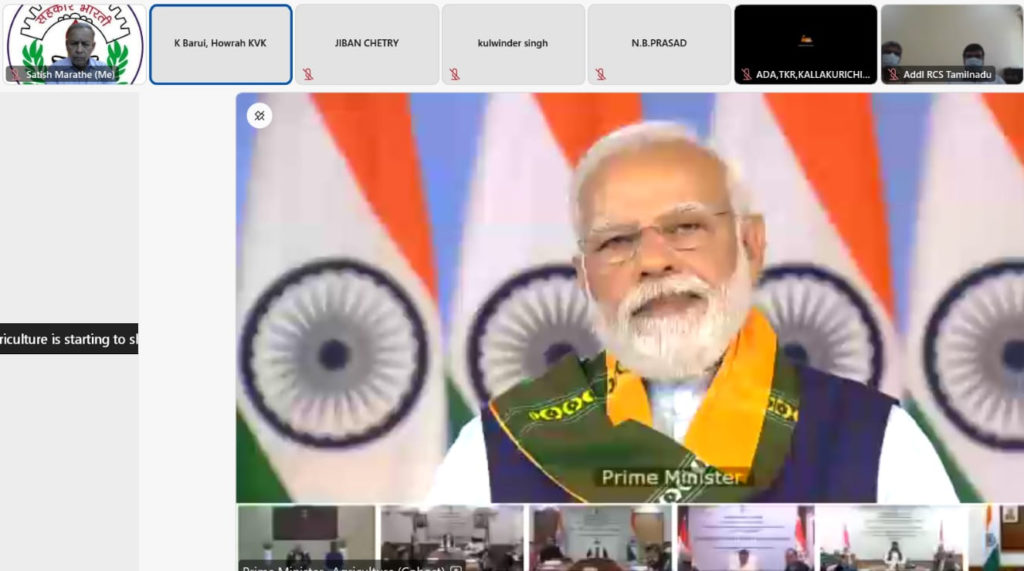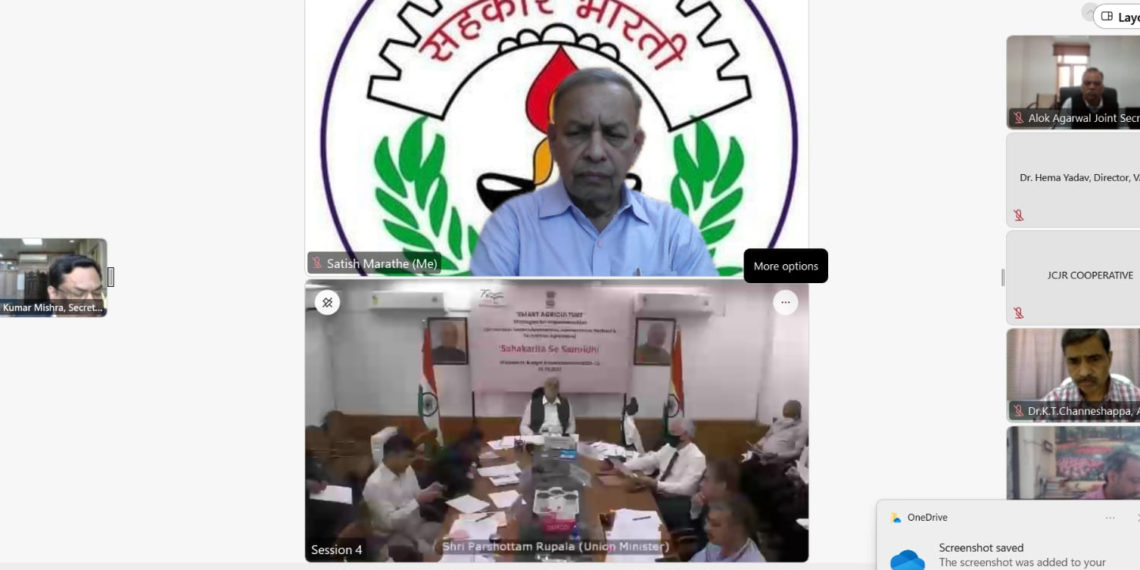During the webinar which was inaugurated by Prime Minister Narendra Modi, Sahakar Bharati Patron, and RBI Central Board Director Satish Marathe put a long wish list of the cooperative sector before Union Minister of State for Cooperation BL Verma and urged him to encourage large cooperative credit societies to convert themselves into UCBs.
Marathe further said that there is an urgent need to re-write the State Co-op Acts in the present economic scenario to empower Co-ops to Expand, Professionalise, Raise Capital/Long Term Funds, etc. Besides, a New Deposit Insurance Corporation needs to be set up to provide Deposit Insurance to Depositors for all PACs, Primary Milk Socs, and all types of Credit CoOp Socs, he said in the webinar in which Cooperative secretary DK Singh was also present.
“All PACs, Primary Milk Socs, and all types of Credit CoOp Socs should be computerized and should be linked to Payment Gateway. This will enhance Digitalisation and help move towards a Less Cash Economy. New Business Models need to be formulated for DCCBs and StCBs”, Marathe demanded.


“Informal money lending, at high-interest rates, continues unabated in both, rural & urban areas, despite Demonitisation. Hence, we need a strong & vibrant network of CoOp Banks & CoOp Cr Socs”, Marathe asserted.
Coming to DCCBs, Marathe informed, “As against about 700 Districts in the Country, presently there are about 350 DCCBs of which about 100 are loss-making. DCCBs substantially depend on higher financing agencies for extending Credit to PACs and other CoOps Socs and to Units engaged in Non-Farm activities. Looking to the vastness of our Country, we need at least 400 Financially Strong and Well Managed DCCBs”, he demanded.
And on UCBs, he said, “there are about 1550 UCBs in the country. Of these, about 1100 are in Maharashtra, Gujarat, and Karnataka. The balance of 450 UCBs is spread all over the Country. Considering the size of our Country, large population this number of 1550 is small, and it is desired that at least we should have another 1500/2000 UCBs covering all District and major Urban Centers”.














































